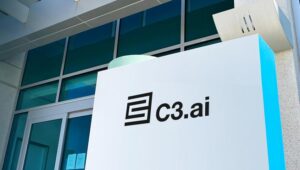Ford Motor is reining in its electric-vehicle expansion, opening one of its Kentucky battery plants to Nissan after softer-than-expected EV uptake, The Wall Street Journal reports.
Idle Capacity Meets Partner Demand
Ford’s $7 billion joint venture with SK On originally planned two fully operational battery factories in Kentucky. Today, one plant remains idle and the other operates below capacity. By supplying Nissan with U.S.-made cells, Ford can spread fixed costs as it suspends its 2024 financial outlook—citing tariff uncertainties—and braces for a $5 billion EV-unit loss this year.
Strategic and Financial Implications
-
Cost Relief: Sharing production lines helps absorb overhead on underutilized assets, reducing per-kWh breakevens.
-
Tariff Mitigation: Nissan gains a domestic battery source amid import duties, while Ford hedges against U.S.-China trade volatility.
-
Credit Backdrop: According to FMP’s Company Rating & Information API, Ford maintains a BBB corporate rating and holds over $30 billion in cash and equivalents—providing the liquidity cushion needed to navigate EV setbacks.
Auto Sector Valuations
EV retrenchment has depressed automotive multiples. Ford’s current EV/EBITDA of 4.5× sits below the auto-sector median of 6.8×, per FMP’s Ratios TTM API, signaling that investors are wary of capital-intensive EV rollouts without immediate profitability.
As Ford leverages partnership to right-size its battery business, the move underscores the broader reality facing legacy automakers: balancing green ambitions with near-term economics.




